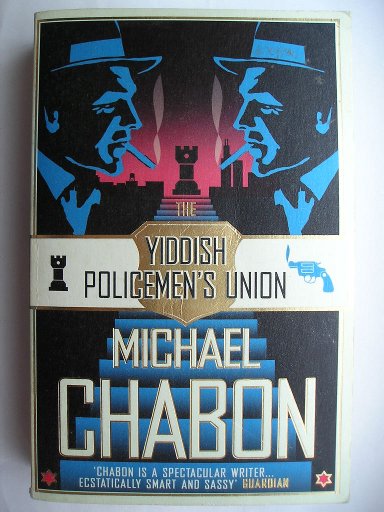
The novel “The Yiddish Policemen’s Union” by Michael Chabon was published for the first time in 2007. It won the Hugo, Nebula and Locus awards as the best science fiction novel of the year and the Sidewise Award for Alternate History as the best alternative history novel of the year.
Meyer Landsman is a hoemicide cop of the police department of Sitka, Alaska. The murder of Mendel Shpilman, a brilliant guy but a drug addict, is a big problem first of all because the situation in Alaska is changing. Sitka has been under the control of the Jews who escaped the Nazis and of their descendants for 60 years but will soon return to being a normal Alaskan city.
Landsman and his colleagues have to try to solve as many cases as they can and bury the others. His superiors, now including his ex-wife Bina, tell him clearly that he shouldn’t investigate the Shpilman case but he understands that there is something big behind it. The victim was the son of a rebbe, in part a religious leader in part a gang boss, and the case has really complex ramifications.
“The Problem of Alaskan Development”, commonly called the Slattery Report, named after Undersecretary of the Interior Harry A. Slattery, included a proposal to move the European refugees, especially Jews from Germany and Austria, then under the Nazi regime. Produced in 1939-40, it received little support among American Jews and the project remained on paper but what would have happened if they had created a settlement of Jewish refugees in Alaska?
In “The Yiddish Policemen’s Union” Michael Chabon imagined the city of Sitka, Alaska, sixty years after the creation of a Jewish community. In that ucronia, which is an alternative history, he set what initially appears to be a detective story with noir tones which, however, develops in an ever more complex way going far beyond these genres.
“The Yiddish Policemen’s Union” won the most important international science fiction awards because it belongs to the ucronia subgenre but was also nominated for the Edgar Allan Poe Award, which considers detective stories, horror and thrillers. That’s because Michael Chabon has cleverly blended various literary genres and reading this novel there’s a growing impression that he used science fiction, detective and noir as tools to tell a broader and deeper story with several twists.
In the course of the novel, Michael Chabon gives us some information about the alternate world in which the story takes place but he doesn’t go into details. The protagonist Meyer Landsman is an alcoholic cop and the story contains some noir clichés. The real wealth of “The Yiddish Policemen’s Union” is in my opinion in the construction of the Sitka’s Jewish community with its various religious currents.
You probably need a good knowledge of Judaism and its various currents to fully appreciate “The Yiddish Policemen’s Union” because in the end that’s the base element of the story that moves everything else. A problem of the novel is that the language is rich but includes several terms in Yiddish. Sometimes the novels that make extensive use of terms in some “exotic” language include a small dictionary to help the reader but this isn’t the case.
These complexities, combined with a story that ends up becoming quite convoluted, can be daunting for the reader. “The Yiddish Policemen’s Union” isn’t a novel very easy to read but I think it’s worth the effort thanks to its abundance of elements. Despite the use of some clichés, the main characters are well developed and perhaps even more so is Sitka’s Jewish community.
In “The Yiddish Policemen’s Union” there’s plenty of action but often the pace is slow because there are also dialogues, descriptions and introspection. In the end, as a detective story it can be disappointing because the ending is weak in some ways but I think it’s suitable for the larger story told in the novel.
In my opinion, overall “The Yiddish Policemen’s Union” is an excellent and surprising novel that blends in an original way elements belonging to different literary genres. If you have the patience to deal with a complex reading I recommend it.

